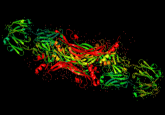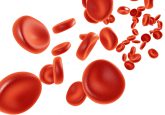miRNA biomarker as an indicative tool for breast cancer recurrence

Accurate forecasting of treatment outcomes is an important feature of cancer therapy, ensuring patients receive the correct treatment type and have practical expectations for therapy success. In a new research paper published in the Journal of the American College of Surgeons, researchers from the University of Galway (Galway, Republic of Ireland) demonstrate the utility of miRNA as biomarkers to help predict breast cancer recurrence and mortality rate post-chemotherapy.
MicroRNAs (miRNAs) are small noncoding RNAs involved in the regulation of gene expression and function, controlling numerous cellular and metabolic pathways. miRNAs also impact oncogenesis and can act as tumor suppressors or as oncogenes depending on their modulating effect on the target gene.
Researchers from the University of Galway have demonstrated that miRNAs can also be effective biomarkers for predicting chemotherapy efficacy. The study reveals that increased expression levels of miR-145 inhibit cancer development and progression and were associated with reduced recurrence of breast cancer. Lead author and researcher at the University of Galway Matthew G. Davey, PhD, commented:
“We showed that increased expression of this biomarker, which was measured in patients’ blood samples during chemotherapy, actually predicted their long-term oncological outcome. We can predict those who are likely to suffer recurrence and those who will be free of recurrence.”
You may be interested in:
- In the Zone: biomarkers and Alzheimer’s disease
- From PCR to biomarkers: a case study evaluation of bioanalytical challenges in cell and gene therapy products
- ‘FRET’ not – detecting cancer biomarkers using fluorescence blinking
The researchers conducted venous sampling at the time of diagnosis (T1) and midway through neoadjuvant chemotherapy (T2) in 124 patients. miRNAs were quantified using RT-qPCR to test for a correlation between increased miRNA levels and recurrence-free (RFS), disease-free (DFS) and overall (OS) survival. Increased expression of miR-145 at T2 was significantly associated with improved RFS and indicated an improvement in DFS, though this was not a significant result. The researchers found no correlation between OS and increased expression of miR-145 in this study.
The benefits of this research are two-fold; not only will patients with increased risk of recurrence be identified and given the necessary support, but individuals with reduced risk of reappearance of breast cancer can be prevented from having systemic treatments with often harmful side effects.
Study coauthor Michael J. Kerin, Chair of Surgery at the University of Galway, remarked:
“This biomarker will give the right treatment to the right patients.”
The research group plans to conduct a similar trial but with a focus on HER2-positive patients, a specific subtype of breast cancer, to follow on from the present study involving patients with all five subtypes. They also hope to see whether miR-145 expression could be increased in patients, as Dr Davey explained:
“One trial is testing miRNA replacement therapies in mice, but the research is in its early stages and it is unclear if the therapy could be transferred to humans”
Source: Eurekalert press release, www.eurekalert.org/news-releases/970342





